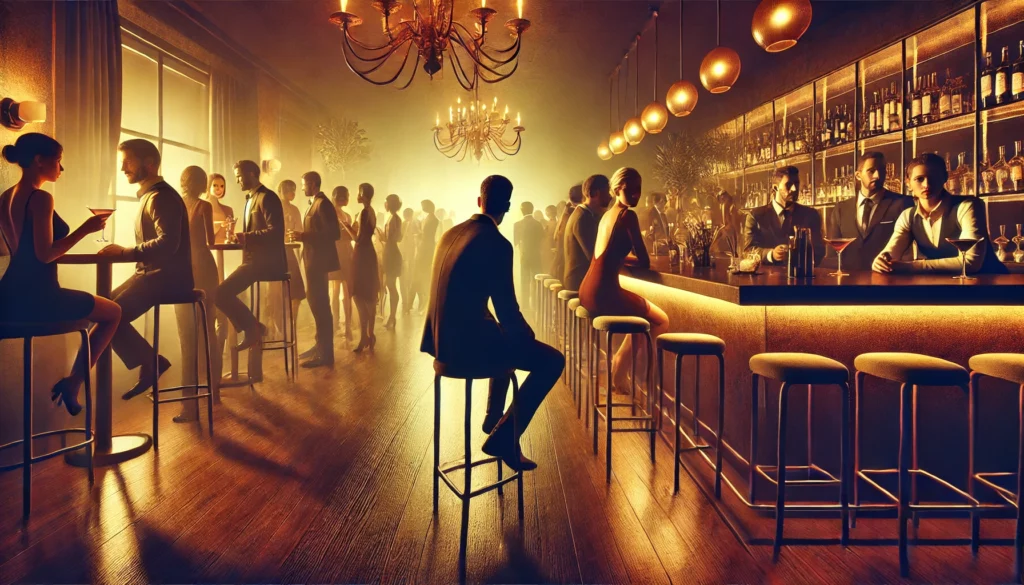
1️⃣ Introduction
Sexual behavior can vary greatly in individuals with mental health conditions such as bipolar disorder and depression. While some individuals explore new experiences consciously and reflectively in stable phases, hypomanic or depressive episodes can lead to problematic or impulsive decisions. This report examines the opportunities and risks of swinger club visits in the context of bipolar and depressive disorders.
2️⃣ Psychological Background
🔄 Bipolar Disorder and Sexual Behavior
People with bipolar disorder experience extreme mood swings that influence their sexual behavior:
- Manic/Hypomanic Phase:
- Increased libido, risky sexual behavior
- Impulsivity, heightened risk-taking
- Lack of emotional reflection, followed by guilt or shame
- Depressive Phase:
- Reduced sexual interest, self-doubt
- Use of sexuality for validation or emotional escape
- Increased vulnerability to rejection
😞 Depression and Sexual Behavior
People with depression often experience:
- Reduced libido, little interest in sexual activity
- Self-doubt and body-related insecurities
- Sexual encounters as a means of validation, to compensate for emotional emptiness
- Heightened sensitivity to rejection, which can intensify negative emotions
3️⃣ Benefits of a Swinger Club Visit
✅ Positive social experience: In stable phases, a visit can boost self-confidence. ✅ Sexual self-exploration: Allows individuals to explore their needs reflectively. ✅ Clear rules and consent: Swinger clubs emphasize open communication and mutual respect. ✅ Social integration: Swinger clubs promote respectful interactions, where a „no“ is always honored, even in non-verbal gestures like pushing away a hand. ✅ Sense of community: Visitors greet each other warmly on equal terms, regardless of social status, profession, or background. This can be especially beneficial for individuals prone to isolation.
4️⃣ Risks of a Swinger Club Visit
⚠️ Impulsivity & Hypersexuality: Risky behavior can occur in manic/hypomanic phases. ⚠️ Emotional instability:Rejection or unexpected situations can worsen depressive symptoms. ⚠️ Self-esteem issues: If the visit is motivated by self-doubt, it may reinforce negative feelings. ⚠️ Overstimulation from social dynamics: Despite the open and respectful atmosphere, an intense environment could be overwhelming.
5️⃣ When is a Swinger Club Visit Advisable?
✅ The individual is in a stable phase and makes a conscious, reflective decision. ✅ There is a clear motivationbeyond impulsivity or escape from negative emotions. ✅ Emotional resilience is present to handle rejection or unexpected experiences. ✅ The person feels comfortable with the social dynamics of the club and is open to new experiences.
6️⃣ When Should It Be Avoided?
❌ During a manic or hypomanic episode, to prevent uncontrolled behavior. ❌ In a depressive phase, if the visit serves as validation or emotional escape. ❌ When emotional instability affects the ability to reflect on experiences. ❌ If the visit is driven by compulsion, peer pressure, or low self-esteem.
7️⃣ Conclusion
A swinger club visit can be a rewarding but also risky experience for individuals with bipolar disorder or depression. While stable phases allow for a conscious exploration of one’s sexuality, unstable phases can lead to impulsive or emotionally challenging experiences. The decision should always be made individually, reflectively, and responsibly. The open and respectful atmosphere of a swinger club can be a new social experience that enhances well-being for some, while others may find the intense stimuli overwhelming. One’s emotional and mental well-being should always take priority.